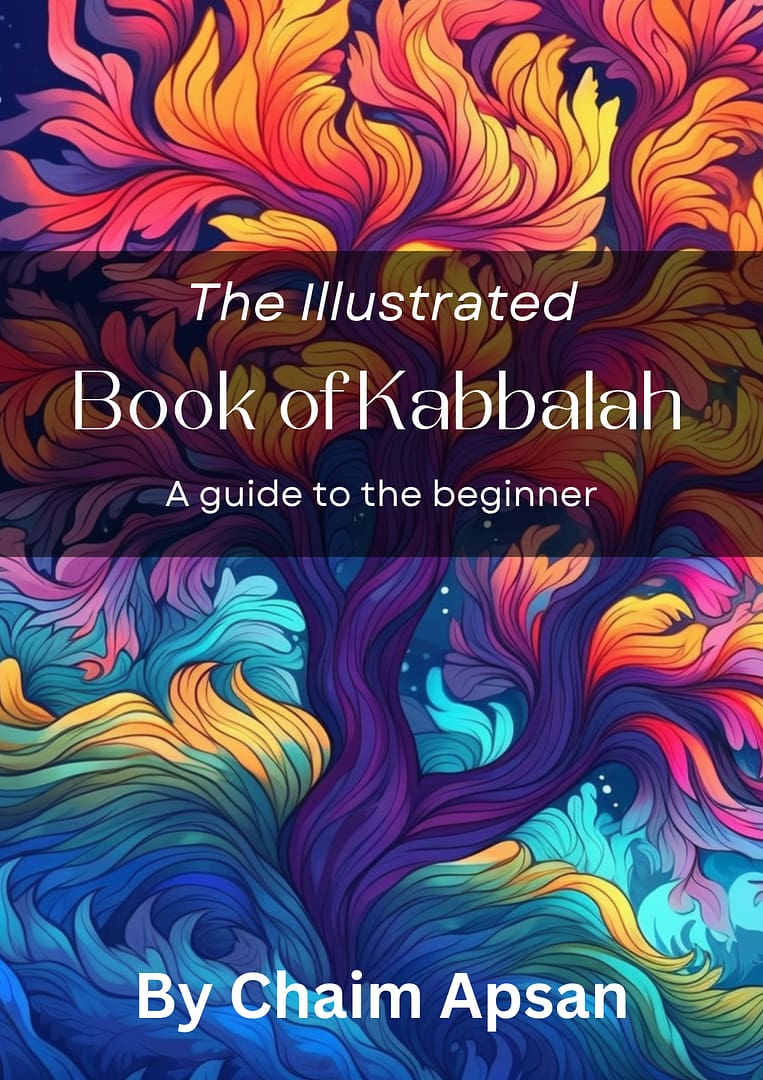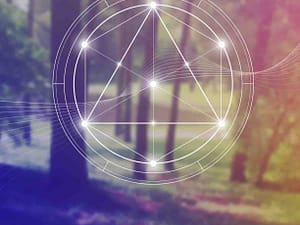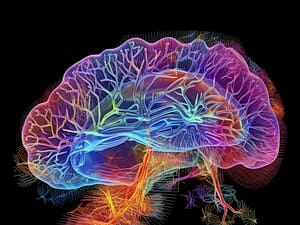Part of being liberated from spiritual slavery and getting to our Tikkun is recognizing Hashem doesn’t owe us anything.
A long time ago, I had surgery to remove an abscess from my back, close to the bottom end of my spine. It was a time when I was starting to discover Judaism and began wearing a Kippah to a few places. Because, in the beginning, we are all self-conscious and unsure on whether we “can represent” the class of “Orthodox Jews”. And, obviously, I didn’t know much, but I was more or less sure this was a good path to follow.
Before that surgery, the doctor asked what caused me to choose this path. Now, questions like these are usually traps, because you simply can’t give a good answer on why “be religious” in 5 minutes, especially someone who just started that path.
My befuddled answer (as far as I remember) had something to do with gratitude; that we at the very least owe Hashem for his kindness. The doctor said this was a “sophism”, a non-argument, because Hashem doesn’t need anything, and it’s only “natural” for Him to give us everything, even if we are not grateful.
I didn’t know what to answer and on the surface, he had a good point. Why, indeed do we “need to repay Hashem”?
Over the years, I came to mature a little and study. I think my mode of thinking evolved a little and I could now come up with a better answer. This is all of course based on our sages and real Rabbis.
The mask and spiritual slavery
The physical world we live in betrays its spiritual essence. At first, this statement looks very enigmatic. Jewish Tradition says we are supposed to look into physicality and grasp the spiritual.
While in a living state what we attain with our senses might seem very real, in reality, it seldom is. In almost all matters, people appear to be more or less than they really are. This is a lot deeper than it sounds at first glance.
The reason is that Hashem created the many spiritual worlds which act as filters to His reality. Because of that, we feel like we have independence and that things work in a more or less mechanistic fashion. But that’s obviously a lie, and it’s part of the spiritual system designed to give us free will. All the system of Sephirot, Partzufim, and spiritual worlds fulfill the purpose of concealing Hashem’s light so that our existence wouldn’t be annulled and we’d be able to choose between good and evil.
We are all born with the tendency to think that the world owes us. We are, after all, good people (most of us), who choose not to do bad in a conscious way. Why shouldn’t we receive what we want? Our sages teach that the baby starts life with his hands clenched to grab everything, but everyone dies with his hands open, to signify we don’t really own anything here.
Now, my intention is not to sound morbid. But the truth is, Hashem’s plan is for us to eliminate the “spirit of guild”, “bread of shame”, and a few other impurities that plague our soul and bring us to spiritual slavery. That’s the essence of Avodat Hashem and it demands effort.
True kedusha never comes for free, only Tumah does.
The heights of gratitude for eliminating spiritual slavery
Gratitude expresses a quintessential truth of the human soul: acknowledging the good it has received. We link the abundance back to its source and make it holy. When we say “thank you” to Hashem, we are effectively acknowledging that He’s the source of all good, therefore removing one more barrier that separates us, and eliminating a little the concept of spiritual slavery.
This is the basis for the blessings of food and consumables. We need to understand they don’t just “come”, we don’t just “work” for them to appear in front of us. This is just a façade.
I think most of the people in Israel know the story of the guy who wanted to make a 50 million shekel transfer and when asked to sign his name, he asked the bank teller to do it for him. The teller was puzzled “how can you not know how to sign your name if you want to move 50M?”.
The guy answered that when he was young, he worked in a factory and to cut costs, the manager fired everyone who didn’t know how to read. He was left without a job, but found some meager work buying and selling fruits. Then his business improved and he bought a store, then another store, then he became rich. All because he didn’t know how to read, so he kept that way.

But what is really spiritual slavery?
We all read in the Agadah of Pesach that we suffered from spiritual slavery and even to this day we have that. I’d offer an answer that is probably already known; essentially spiritual slavery is not being able to choose between right and wrong.
We have a very flawed perception of the universe, which is mostly filtered by our (often warped) beliefs and knowledge. True perception (or, in Hebrew parlance, Da’at) is only acquired by shedding the impurities from our intellect. And it takes a lot of years of self-mastery to come to a true, objective appreciation of reality. Breathing properly also helps, mind you.
Purifying our minds allows us to climb the so-called spiritual worlds. Consequently, the more one can perceive what lies behind all the filters. And, as one moves closer to Hashem, deepening his perception, the more one sees more beauty and blessing in the world and lives better and happier.
Emunah is then achieving this state of “mental grounding” that everything is in Hashem’s hands and we have therefore nothing to fear and nothing to be sad or angry about.
Expressing truth
The human soul longs for the Creator, who is the source of all reality.
This fact has many deep implications, but one of them is that we all strive to go back to our Source, despite our bodies screaming otherwise. According to Rabbi Moshe Chaim Luzzatto (the Ramchal) in his book Orchot Tzaddikim, reaching toward Hashem is the only thing that justifies life.
It’s very painful for the soul to be bound in physicality. So, when we genuinely express gratitude, we are not just thanking another (or Another), but instead tracking the good back to its source and bringing it to this physical world by speaking.
That, in itself, is an excellent exercise in nullifying the ego, our identification with the lower self. Not only that, but gratitude breaks our regular thinking pattern of taking everything for granted, giving us a slight lift upwards.
This is not a trivial exercise. The Jewish masters of the Mussar (self-discipline) movement emphasized greatly the importance of proper gratitude. As one can imagine, it’s not the outward gesture that counts as much as the inner transformation and genuine expression of the soul, which is granted an opening from our crude body.
But there’s another aspect of gratitude. When we thank another, we need to be conscious that this person was also sent by the Creator. Everything we experience is an act of Hashem and tracking it back to the real source is pretty much the goal of spirituality. And it’s very uplifting and liberating.
Sure enough, one has to thank the doctors, but were it not for the fact that Hashem created them in the first place, and allowed them the possibility of learning and working (not to mention giving a functioning body for free), there wouldn’t be anyone to cure us. Since thanking the people who do us a favor (even a “paid favor” like curing us) is a “step above us”, we are able to ascend the ladder of consciousness and become closer to Hashem.
But Hashem comes first.
An example on gratitude
As we know, Moshe Rabbenu, is the greatest of all prophets. Some 3.300 years ago, he was commanded not to hit the waters of the Nile when he was to bring forth the plague of blood to Ancient Egypt. Instead, Aharon, his brother was commanded to do so.
Why is that?
The Rashi explains that Moshe didn’t want to act ungratefully to the river for having carried him safely when he was left in a basket there as a baby.
But this is not enough and raises another question: are rivers actually conscious and capable of feeling?
As it turns out, Moshe did not want to act in a way that could potentially damage his soul by not acknowledging the good… even of something inanimate as the river! And that’s because this small slight would cause a very undesirable impression in his soul!
Good is good, no matter where it comes from. When we fail to acknowledge it, that’s a reflection of a reflect we keep inside. And let’s remember the rule: Energy flows where intention goes.
Gratitude in marriage
Rabbi Shalom Arush in his famous Garden of Peace (there’s a version for men and another for women) writes that gratitude is the foundation of marriage. Spouses should never let a day pass by without thanking each other for something.
Knowing what to thank for is more than just a nicety we do to keep the others happy, but is an exercise in seeing God in everything.
The 3-letter Hebrew word for man is Ish (alef, yod and shin) and for woman is Isha (alef, shin and heh). Both of them contain the word Esh (Fire, composed of alef and shin). The remaining letters, yod and heh form one of the names of Hashem.
By this, the Jewish sages explain that if a man and a woman bring Hashem to the marriage, they are complete (Ish and Isha), whereas if they leave Him out, there’s only fire (Esh).
Revealing that spark of the divine by acknowledging that we received something is in fact one of the greatest favor we can do our spouses and ourselves. If we are to live a happy, fulfilling life, that is.

Conclusion
We see then that gratitude transcends the natural inclinations of the human body. It’s more than just words, but a true expression of the soul. It also rectifies it from the spiritual slavery of thinking everything belongs to us.
Being grateful is one of the keys to transcendence and allows us to be more fully in control of our feelings. One who can’t be thankful is blind and weak simply because we ALL have something to be thankful for. So, failing to acknowledge that isn’t “self-sufficiency”, but a very serious defect.
The psychological benefits have already been amply documented by science.
Happier people thank more.
Thankful people are happier.
That’s, in summary, what I would’ve told my doctor.
Many blessings to you and your family.













